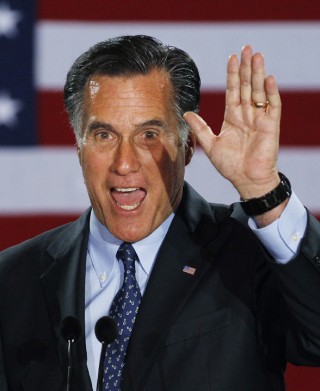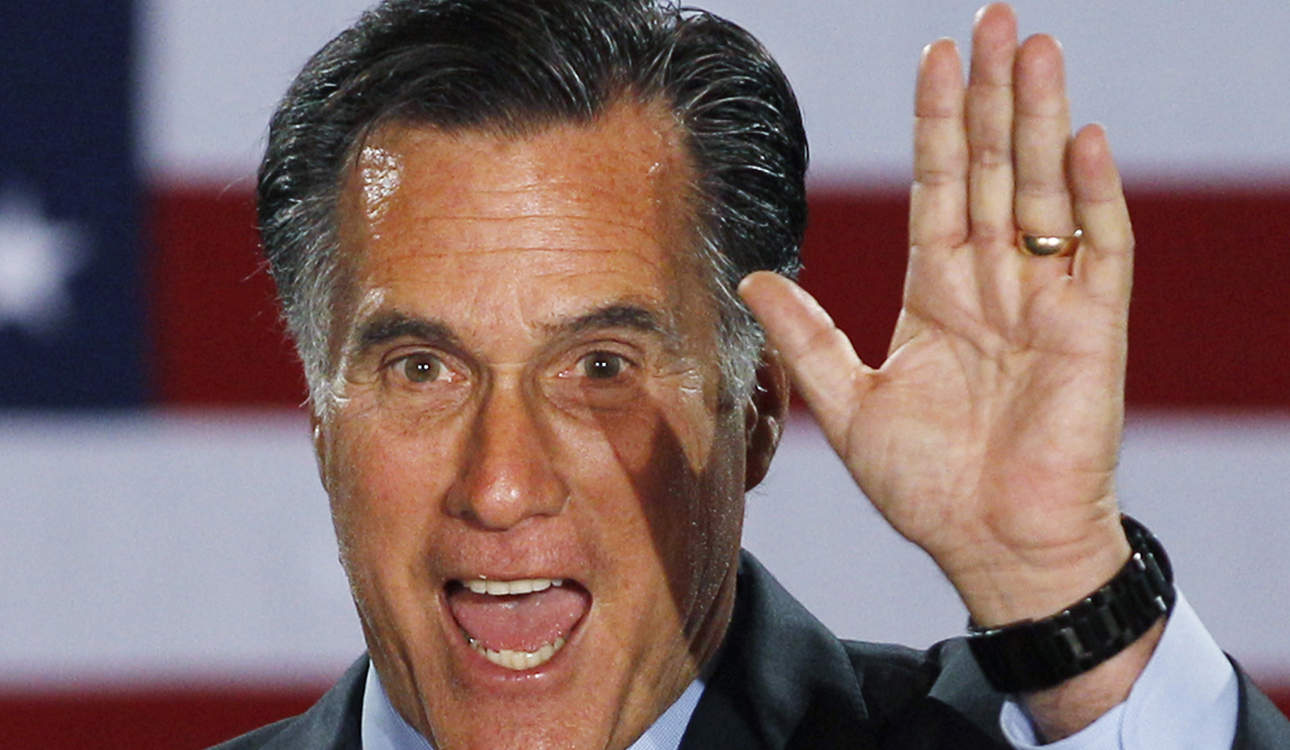
By David Espo and Kasie Hunt
Associated Press
MILWAUKEE — Mitt Romney tightened his grip on the Republican presidential nomination Tuesday night, sweeping primaries in Wisconsin, Maryland and Washington, D.C., with time left over to swap charges with President Barack Obama.
“Four more years?” Romney asked sarcastically of the president as supporters cheered in Milwaukee.
He said Obama was “a little out of touch” after spending four years surrounded by the trappings of power and had presided over near-record job losses as well as increases in poverty, home foreclosures, government debt and gasoline prices. In Washington, Obama said things could be worse — and he predicted they would be if Romney and the Republicans got their way.
The victories enabled Romney to pad his already-wide delegate lead over Republican rival Rick Santorum, who flashed defiance in the face of pressure to abandon his own candidacy in the name of party unity.
Wisconsin was the marquee contest of the night, the only place of the three on the ballot where Santorum mounted a significant effort. Romney’s victory there marked his fourth in little more than a month in a belt of industrial states that also included Michigan, Ohio, and Illinois.
Returns from 15 percent of the state’s precincts showed Romney with 43 percent of the vote to 38 percent for Santorum, 11 percent for Ron Paul and 6 percent for Newt Gingrich.
Returns from 25 percent of Maryland’s precincts showed Romney with 48 percent of the vote to 30 percent for Santorum, 11 percent for Gingrich and 9 percent for Ron Paul.
With 43 percent precincts counted in Washington, Romney had 68 percent of the vote to 13 percent for Paul and 11 percent for Gingrich. Santorum was not on the ballot.
“We won ‘em all,” Romney declared, a former Massachusetts governor now the nominee-in-waiting for a party eager to reclaim the White House.
For Romney, the end of the contested primary campaign could hardly come soon enough. Obama has gained in the polls in recent months, particularly among women, as Republicans vie among themselves for support from a conservative party electorate.
Santorum has devoted more time to social concerns — including birth control — than Romney, who has generally stayed focused on economic issues.
Additionally, surveys indicate Americans are growing more optimistic about the overall state of the economy. Unemployment has fallen in recent months, but it is still at a relatively high 8.3 percent of the workforce.
Romney won at least 74 delegates in the three races, with 21 yet to be allocated.
That pushed his total to 646 of the 1,144 needed to clinch the nomination. Santorum has 272 delegates, Gingrich 135 and Paul 51.
Interviews with voters leaving Republican polling places in Maryland and Wisconsin showed an electorate more concerned with a candidate’s ability to ability to defeat Obama than with the strength of his conservatism, his moral character or his stand on the issues. Similar soundings in earlier states have consistently worked to Romney’s advantage.
Voters in both states were less apt to be born again or evangelical Christians than in most previous contests — 37 percent in Wisconsin and 33 percent in Maryland. Based on earlier contests, that, too, suggested an advantage for Romney.
Increasingly, Romney and many senior figures in his party have begun behaving as if the primaries were an afterthought, hoping to pivot to the fall campaign and criticism of Obama.
“He gets full credit or blame for what’s happened in this economy and what’s happened to gasoline prices under his watch and what’s happened to our schools and what’s happened to our military forces,” Romney said of the president while campaigning in Waukesha, Wis.
Obama, in a speech to the annual meeting of The Associated Press, said a House-passed budget written by Republicans was “antithetical to our entire history as a land of opportunity and upward mobility for everybody who’s willing to work for it. … It is a prescription for decline.”
When he wasn’t focusing his rhetoric on Obama, Romney prodded Santorum to quit the race, suggesting a refusal to do so could cost the party the election in November.
“The right thing for us, I think, is to get a nominee as soon as we can and be able to focus on Barack Obama,” Romney said in an interview with Fox News.
“You have to remember that it was Ross Perot that allowed Bill Clinton to win” in 1992, he added, a reference to the Texan who ran as an independent that year,” Romney said.






